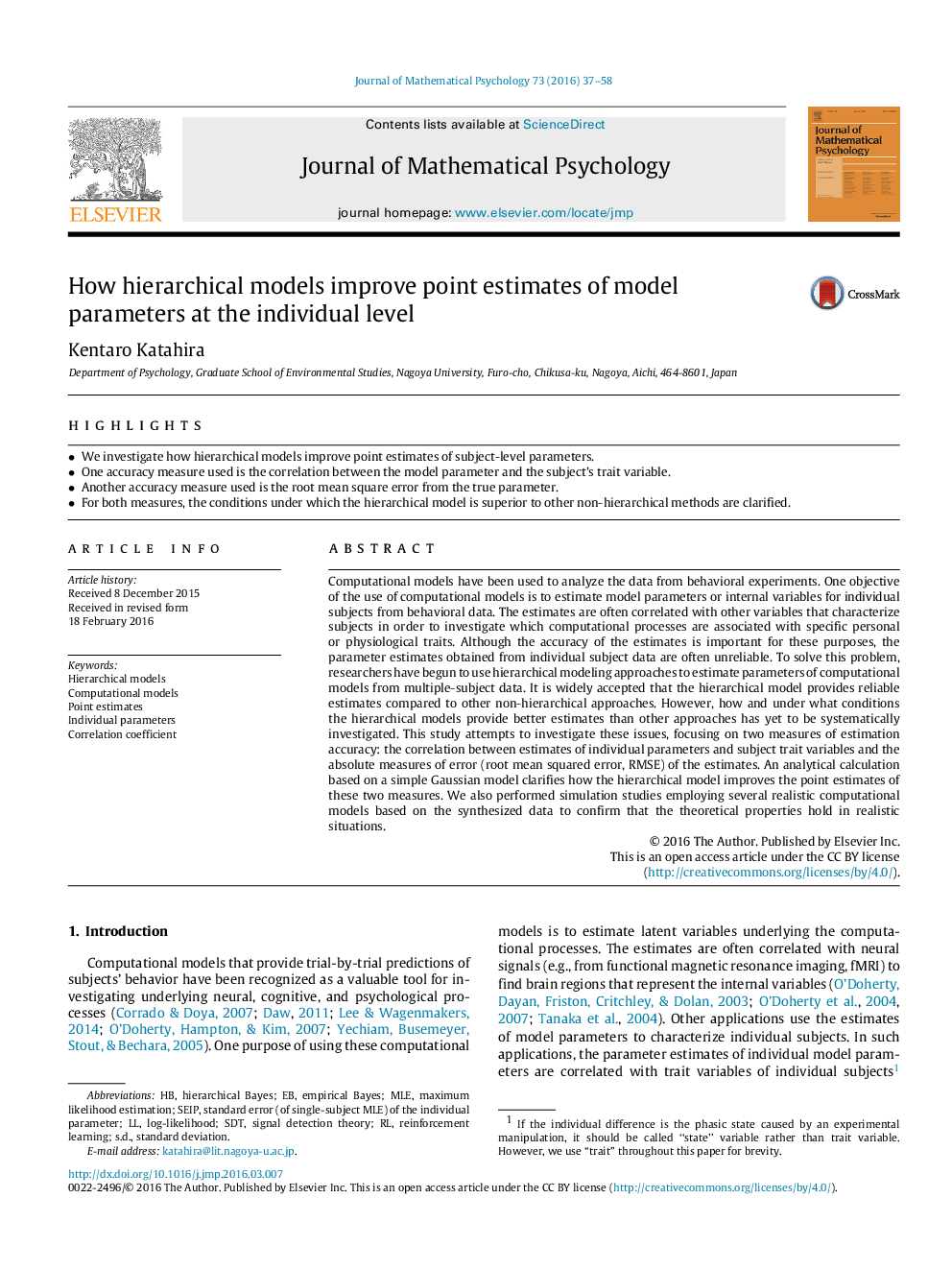| کد مقاله | کد نشریه | سال انتشار | مقاله انگلیسی | نسخه تمام متن |
|---|---|---|---|---|
| 6799277 | 542395 | 2016 | 22 صفحه PDF | دانلود رایگان |
عنوان انگلیسی مقاله ISI
How hierarchical models improve point estimates of model parameters at the individual level
ترجمه فارسی عنوان
چگونه مدل های سلسله مراتبی، برآوردهای نقطه ای از پارامترهای مدل در سطح فردی را بهبود می بخشد
دانلود مقاله + سفارش ترجمه
دانلود مقاله ISI انگلیسی
رایگان برای ایرانیان
کلمات کلیدی
MLESDTPoint estimatesEmpirical Bayes - Bayes تجربیHierarchical Bayes - Bayes سلسله مراتبیS.D. - SD.log-likelihood - احتمال ورودstandard deviation - انحراف معیارMaximum likelihood estimation - برآورد درستنمایی بیشینه یا برآورد حداکثر احتمالSignal detection theory - تئوری تشخیص سیگنالCorrelation coefficient - ضریب همبستگیComputational models - مدل های محاسباتیHierarchical models - مدلهای سلسله مراتبیReinforcement learning - یادگیری تقویتی
موضوعات مرتبط
مهندسی و علوم پایه
ریاضیات
ریاضیات کاربردی
چکیده انگلیسی
Computational models have been used to analyze the data from behavioral experiments. One objective of the use of computational models is to estimate model parameters or internal variables for individual subjects from behavioral data. The estimates are often correlated with other variables that characterize subjects in order to investigate which computational processes are associated with specific personal or physiological traits. Although the accuracy of the estimates is important for these purposes, the parameter estimates obtained from individual subject data are often unreliable. To solve this problem, researchers have begun to use hierarchical modeling approaches to estimate parameters of computational models from multiple-subject data. It is widely accepted that the hierarchical model provides reliable estimates compared to other non-hierarchical approaches. However, how and under what conditions the hierarchical models provide better estimates than other approaches has yet to be systematically investigated. This study attempts to investigate these issues, focusing on two measures of estimation accuracy: the correlation between estimates of individual parameters and subject trait variables and the absolute measures of error (root mean squared error, RMSE) of the estimates. An analytical calculation based on a simple Gaussian model clarifies how the hierarchical model improves the point estimates of these two measures. We also performed simulation studies employing several realistic computational models based on the synthesized data to confirm that the theoretical properties hold in realistic situations.
ناشر
Database: Elsevier - ScienceDirect (ساینس دایرکت)
Journal: Journal of Mathematical Psychology - Volume 73, August 2016, Pages 37-58
Journal: Journal of Mathematical Psychology - Volume 73, August 2016, Pages 37-58
نویسندگان
Kentaro Katahira,
